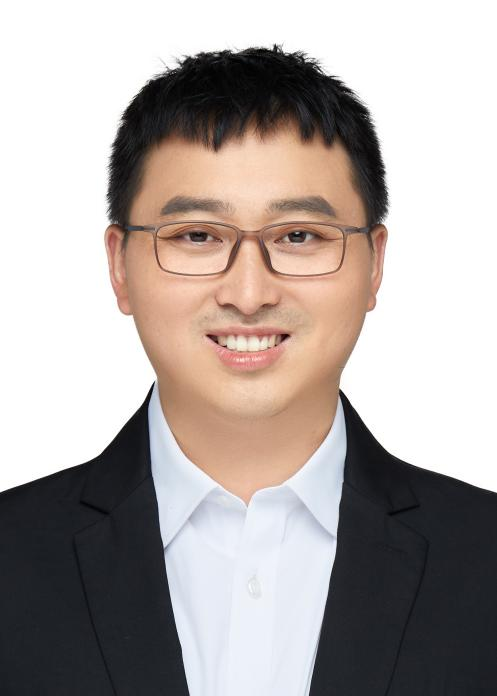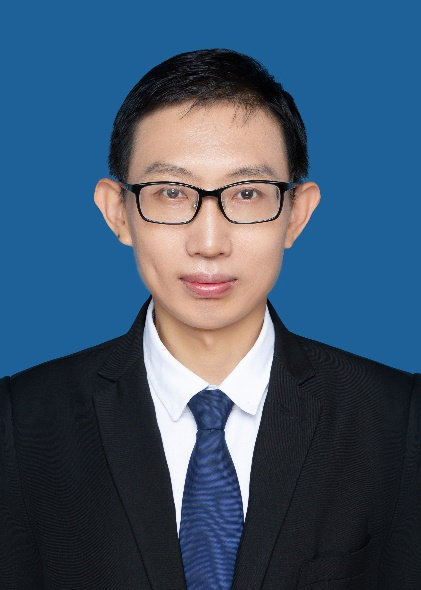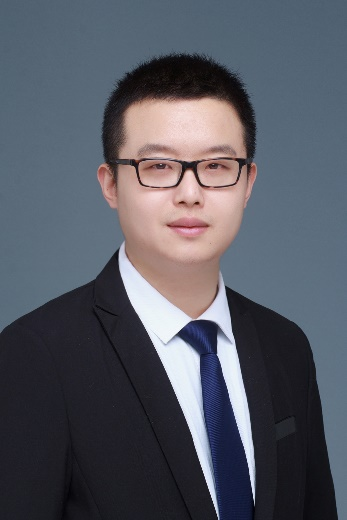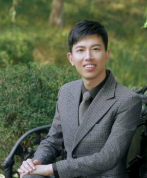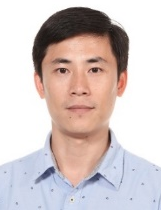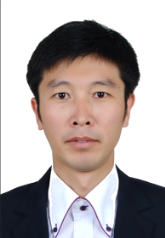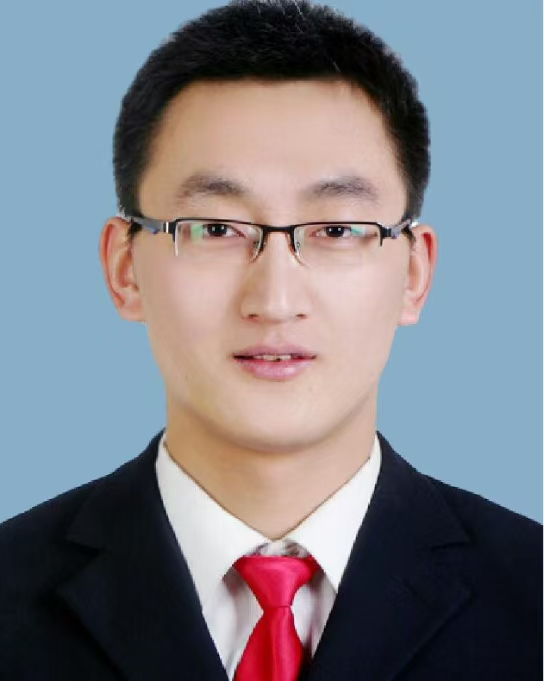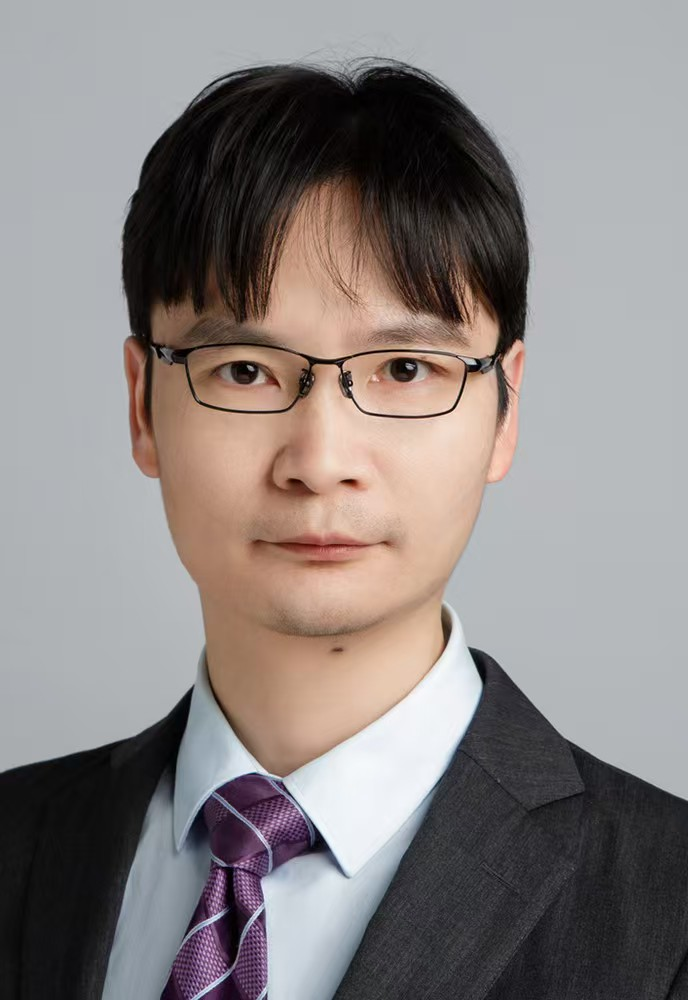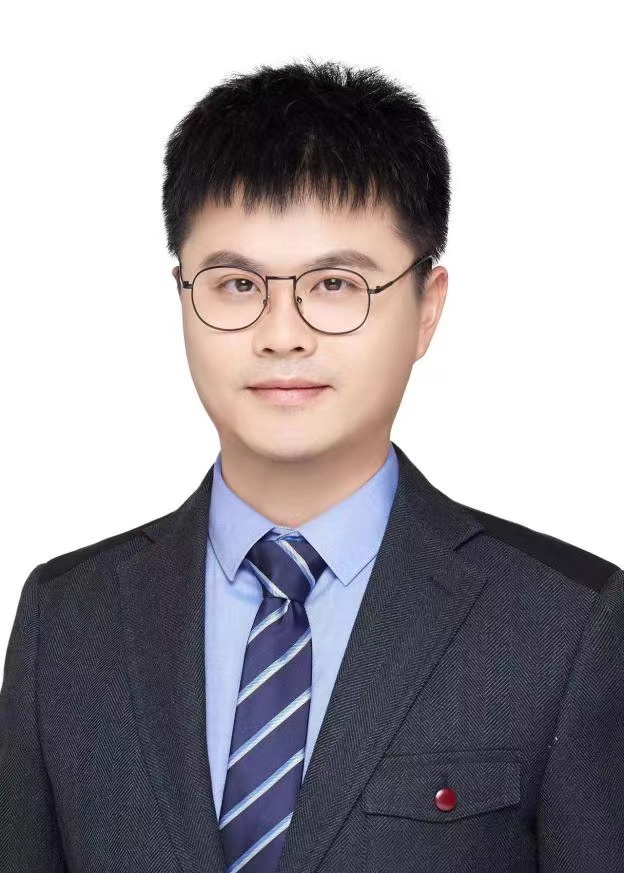
Professor Yulong Huang,Beijing Wuzi University, ChinaBIO: Professor YulongHuang is a distinguished professor and doctoral supervisor, recognized as a national-level young talent. He has long been engaged in research on intelligent information fusion theory and its applications in intelligent navigation. He has led over ten national and provincial-level projects, including the Key Project of the National Natural Science Foundation of China (NSFC) Joint Fund, key research and development projects under the Ministry of Science and Technology, projects supported by the National Defense Science and Technology Administration (JKW), and key projects of the Ministry of Education's Frontier Research Center. As the first author or corresponding author, he has published more than 60 papers in top-tier IEEE transactions. Professor Huang has been listed among the world's top 2% most influential scientists and has been selected for the China Association for Science and Technology (CAST) Young Talent Support Program, the Hong Kong Scholars Program, and the "Upward and Aspiring Youth" award in Heilongjiang Province. His notable achievements include the First Prize of the Heilongjiang Provincial Natural Science Award, the First Prize of the Natural Science Award from the Chinese Association of Automation, the Wu Wenjun Artificial Intelligence Excellent Youth Award, the IEEE Barry Carlton Award, an Honorable Mention for the IEEE Barry Carlton Award, and the Outstanding Doctoral Dissertation Award from the Chinese Association of Automation. Currently, Professor Huang serves as an Associate Editor for several prestigious international journals, including IEEE Transactions on Automatic Control, IEEE Transactions on Automation Science and Engineering, IEEE Transactions on Aerospace and Electronic Systems, IEEE Transactions on Instrumentation and Measurement, and IEEE Sensors Journal. |
|
Professor Shuai Liu,Shandong University, ChinaBIO: Professor Shuai Liu is a Qilu Distinguished Professor and doctoral supervisor at the School of Control Science and Engineering, Shandong University. He earned his Ph.D. from Nanyang Technological University, Singapore, in 2012. From 2011 to 2017, he served as a Senior Research Fellow at the Berkeley Education Alliance for Research in Singapore (BEARS), a joint research center between Singapore and the University of California, Berkeley. Professor Liu is recognized as a National Overseas High-Level Young Talent, a Taishan Scholar Distinguished Expert of Shandong Province, an Outstanding Young Scholar of Shandong University, and a entrepreneurial talent under the "5150 Talent Introduction and Doubling Plan" of Jinan City. He teaches courses such as Principles of Automatic Control, Modern Control Theory, and Linear Algebra. Professor Liu serves on the editorial boards of top-tier journals, including IEEE Journal of Automation and Sinica (JAS) and IEEE Transactions on Cybernetics (T-CYBER). He is also a member of the Conference Editorial Board of the IEEE Control Systems Society (CSS), the Technical Committee on Nonlinear Systems and Control, and the Technical Committee on Smart Cities under the IEEE CSS. He has frequently taken on leadership roles at prestigious international conferences in the field of control, including serving as Regional Chair, Program Chair, Invited Session Chair, and Publicity Chair for events such as the IEEE International Conference on Automation Science and Engineering, the IEEE International Conference on Control and Automation, and the IEEE International Conference on Control, Automation, Robotics and Vision. |
|
Professor Xiangyu Wang,Southeast University, ChinaBIO: Professor XiangyuWang is a professor and doctoral supervisor at the School of Automation, Southeast University, and a key member of the Mechatronic Systems Control Laboratory. He is recognized as a National High-Level Young Talent, an Outstanding Young Scholar of Jiangsu Province, and an Excellent Young Backbone Teacher under the "Qinglan Project" of Jiangsu Higher Education Institutions. Professor Wang earned his Ph.D. from the School of Automation, Southeast University, in 2014 and has since remained at the university as a faculty member. His research focuses on nonsmooth control, disturbance rejection control, and their applications in multi-robot systems and power electronics systems. He has led over ten national, provincial, and industry-funded projects, including three National Natural Science Foundation of China (NSFC) projects. Professor Wang has published more than 100 papers in domestic and international academic journals and conferences, with over 20 of them appearing in prestigious IEEE transactions such as Automatica, IEEE Transactions on Automatic Control (TAC), IEEE Transactions on Control Systems Technology (TCST), IEEE Transactions on Automation Science and Engineering (TASE), IEEE Transactions on Industrial Electronics (TIE), IEEE Transactions on Power Electronics (TPE), and IEEE Transactions on Circuits and Systems I (TCAS-I). He serves as an Associate Editor for the SCI-indexed journal IET Control Theory and Applications (CTA). He has authored one academic monograph and holds more than ten authorized domestic and international invention patents. As a key contributor, he has been awarded the First Prize and Second Prize of the Natural Science Award by the Ministry of Education, a Gold Medal at the Geneva International Exhibition of Inventions, the Huawei Spark Award, and the Jiangsu Provincial Natural Science Outstanding Academic Achievement Award. He has also been listed among the world's top 2% most influential scientists by Stanford University. Professor Wang is the Secretary-General of the Jiangsu Association of Automation, a Senior Member of IEEE, a Senior Member of the Chinese Association of Automation, and a Senior Member of the Chinese Institute of Command and Control. He also serves on three technical committees. Additionally, he has taken on various leadership roles in organizing international and domestic academic conferences, including General Chair, Program Chair, and Publication Chair. |
|
Associate Professor He Kong,Southern University of Science and Technology, ChinaBIO: He Kong is a researcher and doctoral supervisor at the Southern University of Science and Technology (SUSTech), where he also serves as the Deputy Director of the SUSTech Robotics Institute. He has led several prestigious projects, including the National Overseas High-Level Talent Program (Youth), the National Natural Science Foundation of China (NSFC) Original Exploration Program, the NSFC Joint Fund Key Project, the National Key R&D Program on Intelligent Robotics (as a project leader), and the Shenzhen General Program. He is a core member of the Guangdong Provincial Key Laboratory, the Shenzhen Key Laboratory, and the Shenzhen High-Level Talent Team Program (Peacock Team). His primary research areas include robot and spacecraft control, multimodal perception and fusion in robotics, optimal filtering, and parameter identification. Professor Kong earned his bachelor's degree from China University of Mining and Technology, his master's degree from Harbin Institute of Technology, and his Ph.D. from the University of Newcastle, Australia. Professor Kong has received several accolades, including the Best Young Paper Nomination Award at the 1st IFAC Workshop on Robot Control (2019), the Best Poster Award at the 5th Chinese Conference on Robotics (2024), and the Best Paper Award at the 14th International Conference on Indoor Positioning and Indoor Navigation (2024). He serves as an Associate Editor for leading international journals in robotics and automation, such as IEEE Robotics and Automation Letters, IEEE Robotics and Automation Magazine, IEEE Sensors Letters, and International Journal of Adaptive Control and Signal Processing. He also holds editorial roles for multiple conferences in the field of robotics and automation. |
|
Professor Liwei An,Northeastern University,ChinaBIO: Professor Liwei An is a professor and doctoral supervisor at Northeastern University and a recipient of the National Science Fund for Excellent Young Scholars. His research focuses on the security of cyber-physical systems and the cooperative control and optimization of unmanned systems. He has published over 40 high-quality SCI-indexed papers, including 16 papers (5 of which are full-length articles) as the first author or corresponding author in top-tier international control journals such as IEEE Transactions on Automatic Control (TAC) and Automatica. Six of his papers have been recognized as ESI Highly Cited Papers. Professor An has led several prestigious projects, including the National Natural Science Foundation of China (NSFC) Excellent Young Scientists Fund, the NSFC Youth Program, and the National Postdoctoral Program for Innovative Talents (BoXin Plan). His contributions have earned him numerous accolades, including the First Prize of the Natural Science Award from the Chinese Association of Automation, the Outstanding Doctoral Dissertation Award from the Chinese Association of Automation, and a nomination for the Guan Zhao-Zhi Award. He has been listed among the world's top 2% most influential scientists in 2023 and 2024 and has been recognized as a Leading Talent in Shenyang. Professor An also serves on the editorial boards of three international academic journals, including International Journal of Control, Automation, and Systems (IJCAS). |
|
Professor Shanying Zhu,Shanghai Jiao Tong University, ChinaBIO: Professor Shanying Zhu is a professor and doctoral supervisor in the Department of Automation at Shanghai Jiao Tong University, as well as a recipient of the National Science Fund for Excellent Young Scholars. He serves as the Deputy Director of the National Engineering Research Center for Industrial Process Automation. His primary research areas include distributed estimation and optimization, cooperative control, and industrial network systems. Professor Zhu has led over 10 major research projects, including the National Key R&D Program and the National Natural Science Foundation of China (NSFC) Excellent Young Scientists Fund/General Program. He has published more than 100 academic papers and co-authored an English monograph. Additionally, he has filed over 20 invention patents. His research achievements have been recognized with numerous awards, including the Second Prize of the National Natural Science Award, the First Prize of the Natural Science Award from the Ministry of Education, the First Prize of the Shanghai Technology Invention Award, and the IEEE Technical Committee on Cyber-Physical Systems (TCCPS) Industrial Technology Excellence Award. Professor Zhu serves on the editorial boards of international journals such as IEEE Transactions on Industrial Informatics (TII) and Journal of Automation and Intelligence (JAI). He is also actively involved in organizing international conferences, holding roles such as TPC/IPC member, Invited Session Chair, Local Arrangement Chair, Publicity Chair, and Track Co-Chair. Professor Zhu is a council member of the Shanghai Association of Automation, a Senior Member of IEEE, and a member of the IEEE Technical Committee on Industrial Informatics and the Technical Committee on Industrial Internet of Things and Applications under the Chinese Association of Automation. |
|
Professor Yuhu Wu,Dalian University of Technology, ChinaBIO: Professor YuhuWu is a professor, dean, and doctoral supervisor at Dalian University of Technology. His research focuses on nonlinear systems, the analysis and game control theory of stochastic Boolean networks, and their fundamental applications in unmanned systems. He has published over 80 SCI-indexed papers, including 21 articles in the two top-tier international control journals, IEEE Transactions on Automatic Control (TAC) and Automatica (17 as the first or corresponding author, with 5 full-length papers in TAC and 7 in Automatica), 1 paper in SIAM Journal on Control and Optimization (SIAM J Control Optim.), and more than 30 papers in other IEEE transactions. His work has been recognized with the Best Paper Award from the flagship journal Control Engineering Practice (2020–2022) of the International Federation of Automatic Control (IFAC). Under his leadership, his team won the Silver Award at the 2023 IEEE Conference on Decision and Control (IEEE CDC 2023) Benchmark Challenge for Autonomous Driving Control (IEEE CDC Benchmark Challenge Silver Award). |
|
Professor Tong Wang,Harbin Institute of Technology, ChinaBIO: ProfessorTong Wang is a professor and doctoral supervisor at Harbin Institute of Technology (HIT) and a recipient of the National Science Fund for Excellent Young Scholars. He has been selected for the National Postdoctoral Program for Innovative Talents and the HIT Young Talents Program. His primary research areas include intelligent perception and autonomous control of spacecraft, intelligent control and applications of complex dynamic systems, and intelligent robotic systems. Professor Wang has been awarded the First Prize of the Heilongjiang Provincial Natural Science Award twice, the Outstanding Paper Award from IEEE Transactions on Neural Networks and Learning Systems, and the Outstanding Doctoral Dissertation Award from the Chinese Association of Automation. He has led over 20 research projects, including the National Natural Science Foundation of China (NSFC) Excellent Young Scientists Fund, the NSFC General Program, and projects under the National Key R&D Program. He has published more than 90 SCI-indexed papers and holds over 10 authorized national invention patents. |
|
Professor Derui Ding,University of Shanghai for Science and Technology,ChinaBIO: Professor DeruiDing is a professor and doctoral supervisor at the University of Shanghai for Science and Technology, recognized as a national-level high-level young talent. His primary research areas include distributed filtering, control and optimization, and networked autonomous intelligent control. He has published one English academic monograph and over 150 SCI-indexed papers, including 14 articles in top-tier control journals such as IEEE Transactions on Automatic Control (TAC) and Automatica, and more than 50 papers in other IEEE transactions. His achievements have earned him the Second Prize of the Beijing Natural Science Award, the 2021 Norbert Wiener Review Paper Award from IEEE/CAA Journal of Automatica Sinica, and the Andrew P. Sage Best Transactions Paper Award from the IEEE Systems, Man, and Cybernetics (SMC) Society in both 2020 and 2022. Professor Ding has led one National Natural Science Foundation of China (NSFC) General Program, co-led one NSFC Key Project, and completed two national defense research projects and three NSFC projects. He is a Senior Member of both the Chinese Association of Automation (CAA) and the Institute of Electrical and Electronics Engineers (IEEE). He serves as an Associate Editor for several international SCI-indexed journals, including IEEE/CAA Journal of Automatica Sinica, IEEE Transactions on Industrial Informatics, Neurocomputing, and IET Control Theory and Applications. |
|
Professor Qinyuan Liu,Tongji University, ChinaBIO: Professor QinyuanLiu is a professor and doctoral supervisor at the School of Computer Science and Technology, Tongji University. His research focuses on multi-sensor data fusion, anomaly detection and fault diagnosis, big data analysis, and machine learning. He has led or participated in over 10 national and provincial-level projects, including the National Natural Science Foundation of China (NSFC) Excellent Young Scientists Fund, the NSFC General Program, the NSFC Youth Program, the National Key R&D Program, and the Major Project of the National AI 2030 Initiative. He has published one Springer monograph and more than 50 academic papers, including nearly 30 articles in IEEE transactions and top-tier journals, with 5 papers recognized as ESI Highly Cited Papers. His accolades include the Second Prize of the Beijing Natural Science Award, the Beijing Qilin Science and Technology Award, the Wu Wenjun Artificial Intelligence Excellent Youth Award, the ACM Shanghai Rising Star Award, and the World Artificial Intelligence Conference Young Outstanding Paper Nomination Award. Professor Liu serves as a Guest Editor, Associate Editor, or Editorial Board Member for five international journals, including Control Engineering Practice and International Journal of Systems Science. He has also held roles such as Associate Editor, Program Committee Member, and Invited Session Chair for over 10 international conferences and has reviewed for more than 20 domestic and international journals and conferences. He is a member of several professional committees, including the Youth Working Committee of the Chinese Association of Artificial Intelligence, the Technical Committee on Fault Diagnosis of the Chinese Association of Automation, the Technical Committee on Intelligent Control and Systems of the Chinese Institute of Command and Control, and the Blockchain Branch of the Chinese Institute of Electronics. Additionally, he serves as an expert reviewer for the National Natural Science Foundation of China, the National Key R&D Program, and the Shanghai Science and Technology Progress Award and Technology Invention Award. |
|
